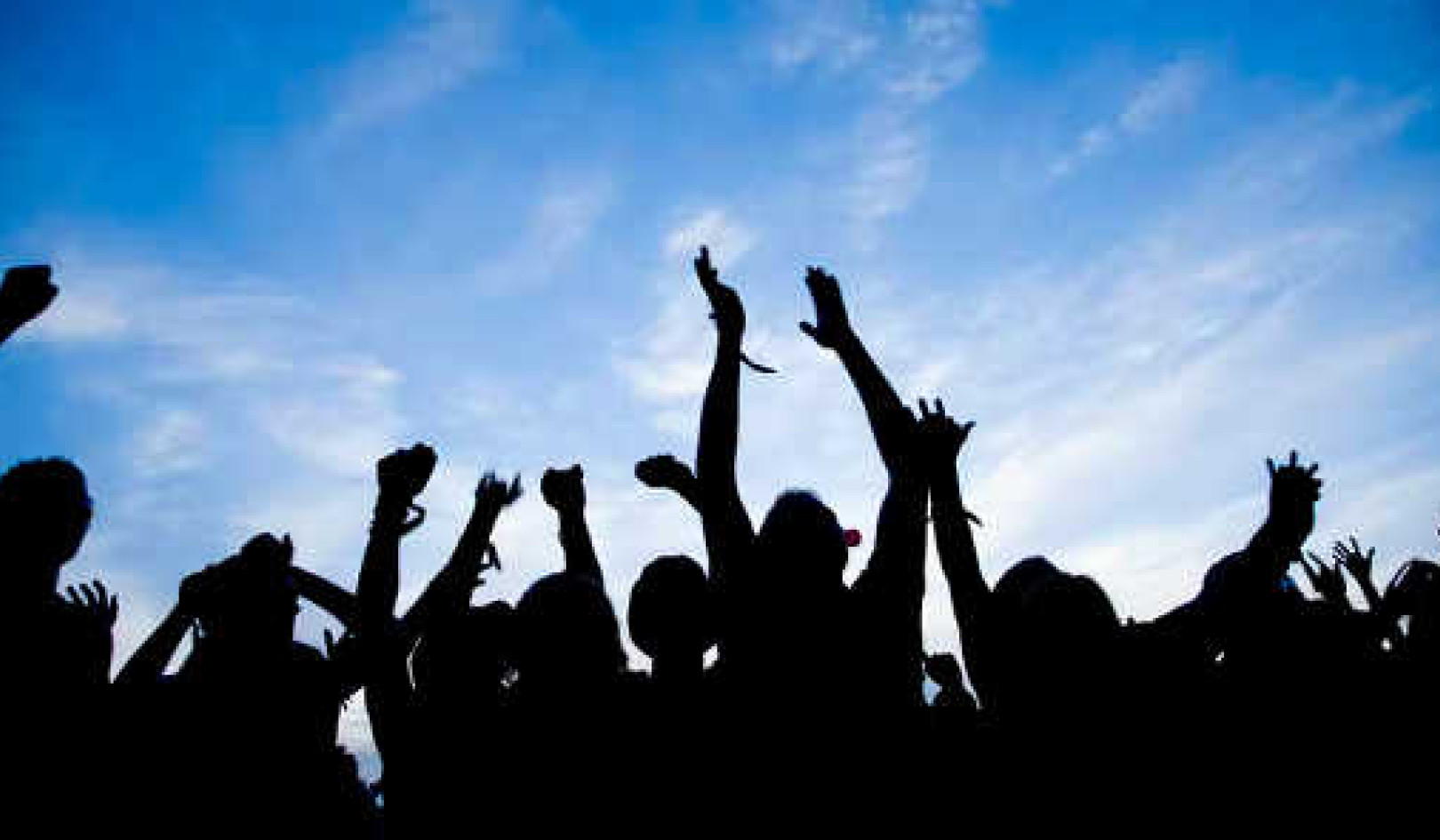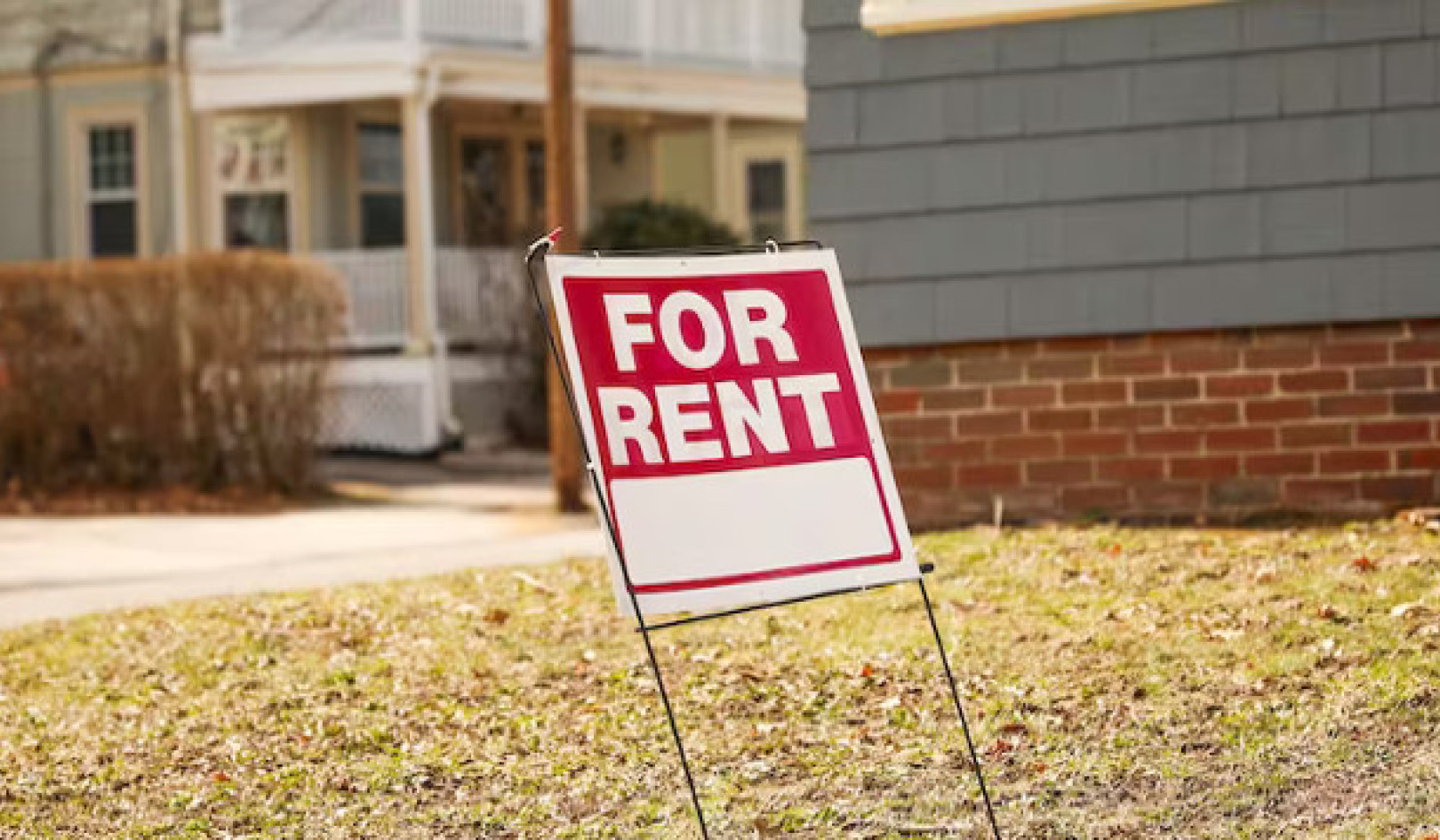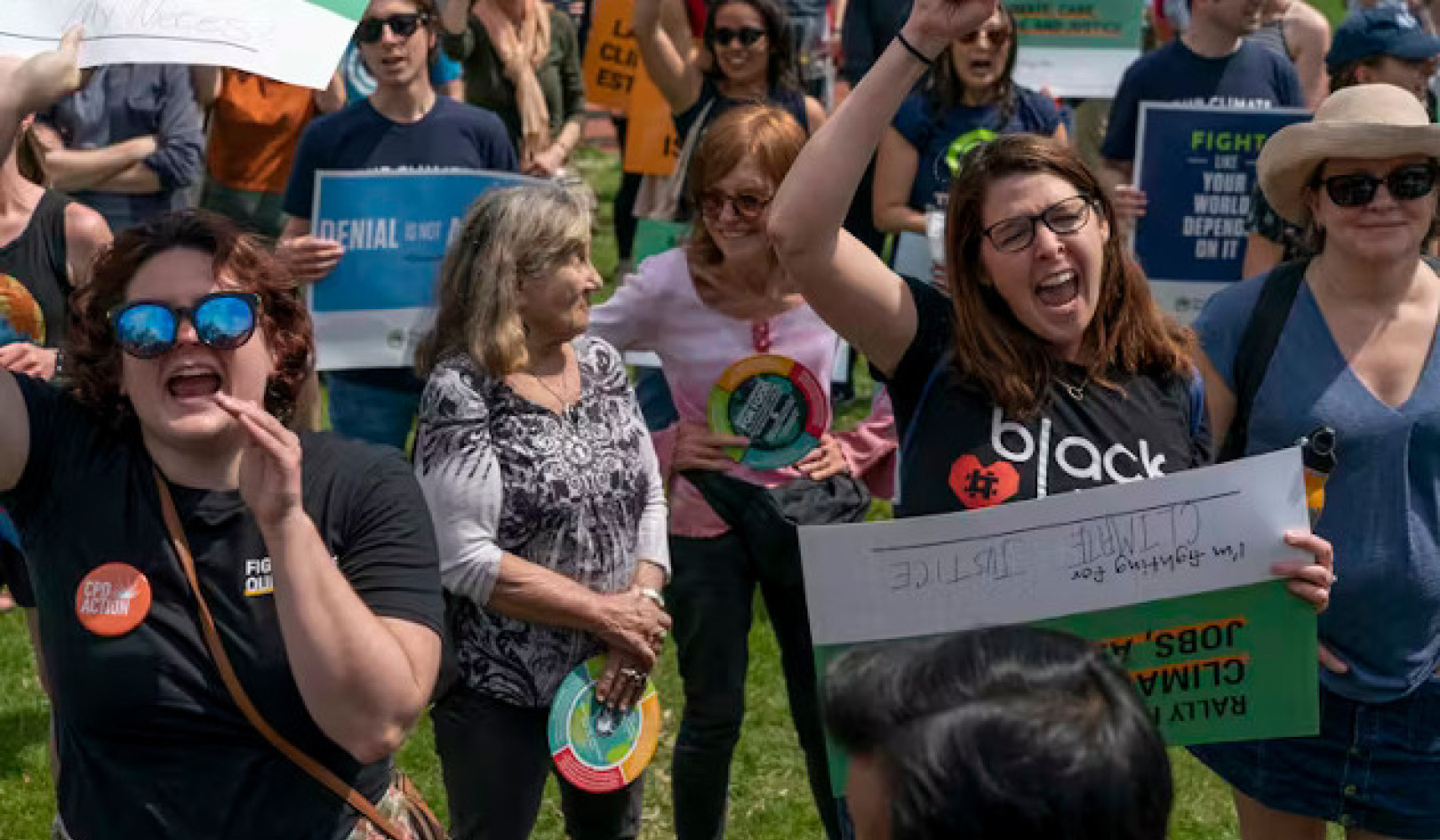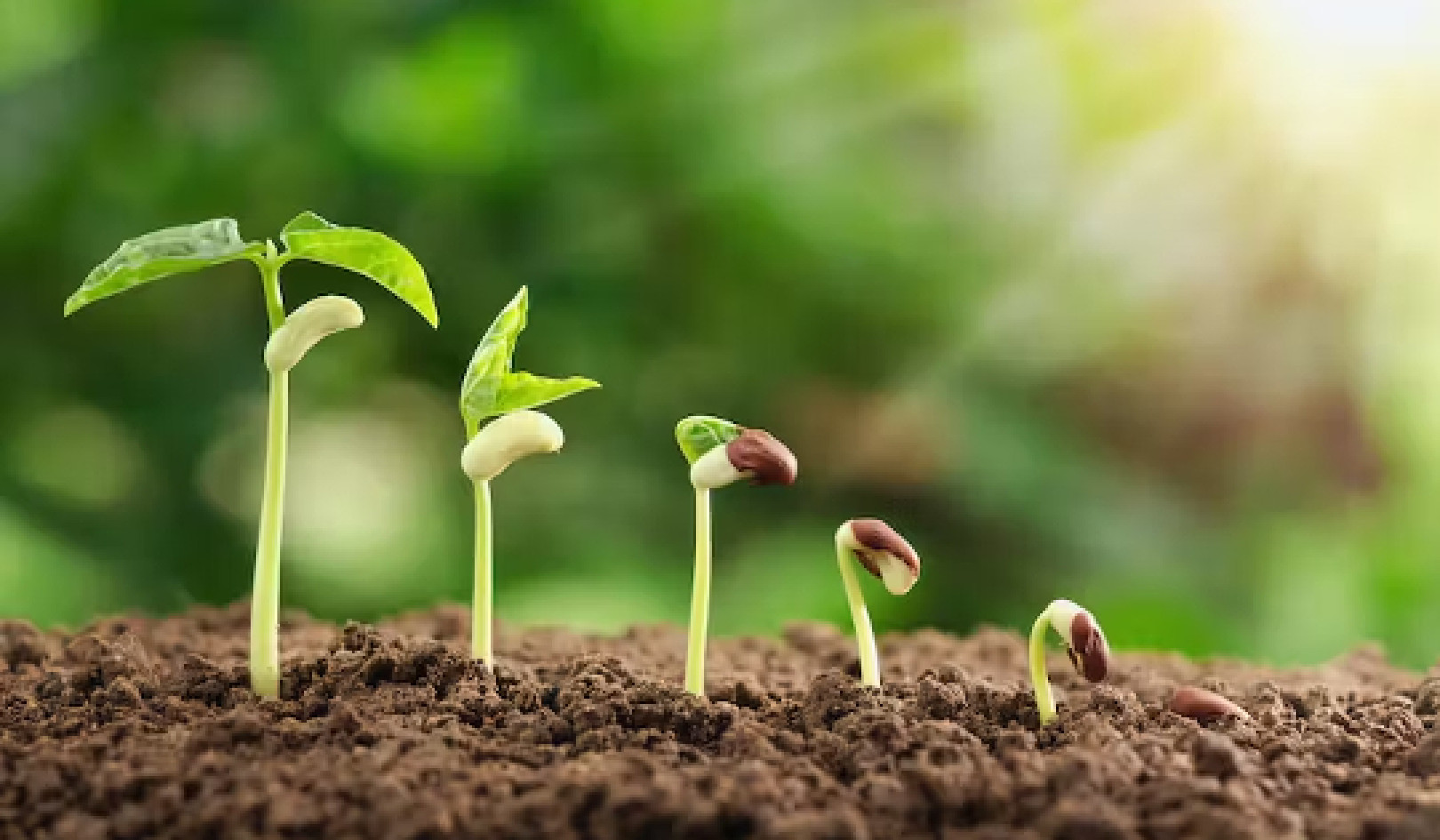
A "fluke" is a random, chance event with enormous, unintended consequences. According to Brian Klaas, professor and author of the new book "Fluke," events shape our lives and world events far more than we think.
Humans tend to craft tidy narratives to explain history and current affairs as if events unfold predictably due to understandable causes and effects. But the reality is often far messier, with sudden surprises and unpredictability playing a significant role that gets overlooked. Klaas argues that paying attention to the function of chance, randomness, and arbitrary events - flukes - is vital to truly understanding how the world works on both a societal and personal level.
Flukes may seem like minor footnotes at first glance. Yet time and again, the unlikely occurrence or freak accident redirects the course of individual lives as well as the fates of nations in monumental ways. Klaas invites us to embrace the unscripted chaos beneath the surface of human experience - and consider how small twists of fortune can suddenly cascade into avalanches of change for better or worse.
Like A Grain Of Sand That Causes An Avalanche
Klaas uses the metaphor of a sand pile to explain fluke events. Imagine slowly adding grains of sand to a pile over time. Eventually, a single extra grain can trigger a sudden avalanche. Similarly, certain societal conditions can reach a "tipping point" where a minor event sparks significant upheavals.
For example, the Arab Spring uprisings started from a street vendor lighting himself on fire. His act of protest resonated widely enough to bring down multiple dictators. Without that one match, would regime change have happened the same way? Klaas argues that the unpredictable interaction of long-brewing tensions and one "spark" led to the full-on revolution.
When Luck Crashes The Party
Klaas also gives an intriguing example of how fluke events may have altered political history: Donald Trump's 2016 presidential run. He points to accounts that Trump decided to launch his unlikely campaign after being mercilessly mocked by President Obama at a 2011 White House Correspondents' Dinner.
Had Trump not been stung by that public ribbing, would he be occupying the Oval Office today? Klaas cautions we shouldn't ignore major social forces already simmering that Trump tapped into masterfully. But he suggests this seemingly slight twist of fate was an under-appreciated catalyst that ultimately helped reshape the nation's political landscape for years to come.
It's hard to prove whether Trump would have run or won without that unpleasant evening. However, the theory highlights how random personal experiences can have oversized societal consequences over time. Paying attention to quirks of personality, luck, and circumstance helps explain how history often develops organically in the real world - not just through smooth, inevitable trends.
Building A World Prone To Fluke Crises
This all raises a logical question: Why do shocks from freak events seem even more impactful in recent years compared to earlier periods?
Klaas argues that modern society has created conditions especially prone to turbulence, instability, and collapse - almost cultivating crisis. He highlights the contemporary drive to maximize efficiency and optimization in institutions, small and large, eliminating flexibility and backup options used to provide stability. Streamlined systems can function efficiently yet become highly fragile in the face of inevitable surprises.
Take the global supply chain gridlock triggered by a single stuck container ship in the Suez Canal in 2021. In the past, such an accident may have caused delays but not cascading breakdowns. Today, however, the over-optimized chains leave no room for error. Thus, a transient fluke event spurred global economic pain for months. Klaas argues that our complex, interdependent systems are now wired for turbulence at the margins - where the most minor unforeseen hiccup can be massively amplified into a systemic crisis.
Finding Order In The Randomness
While shocking events catch our attention, gradual trends still shape the backdrop. Klaas stresses both dramatic fluctuations and steady transformations matter when making sense of a complex world. By humbly accepting the interplay of chance and larger forces outside anyone's control, societies can become wiser, more resilient, and more realistic.
In the fascinating discussion, Klaas dives deeper into additional case studies and research around the impact of randomness. He explores how breakthroughs like the printing press accelerated the spread of ideas - and conspiracies alike. Viewers will come away questioning assumptions about what drives change and reflecting on how tiny sparks can ignite waves of transformation.
The conversation ranges from chaos theory to resilience strategies for less predictable times. Klaas' insights are equal parts sobering and illuminating when grasping the fluid dynamics that dictate the rising and falling fortunes of people, technologies, and nations.
Fluke: Chance, Chaos, and Why Everything We Do Matters
by Brian Klaas
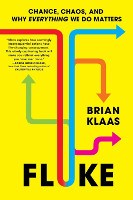 What if life as we know it relies far more on chance and randomness than we realize? In his book "Fluke," author Brian Klaas challenges conventional thinking by arguing that small, accidental events are outsized in shaping individual lives and the course of human history.
What if life as we know it relies far more on chance and randomness than we realize? In his book "Fluke," author Brian Klaas challenges conventional thinking by arguing that small, accidental events are outsized in shaping individual lives and the course of human history.
Klaas draws on social science, chaos theory, and evolutionary biology insights to argue that we tend to see life through the illusion of predictable order and narratives.
However, if we rewind and replay events differently, our lives and societies would likely transform radically. Tiny twists of fate - a missed flight, a chance meeting, being in the wrong place at the wrong time - can snowball into massive unintended consequences. Klaas urges reexamining assumptions of control and certainty. Instead, acknowledging the chaotic interplay of luck and circumstance allows us to live with more wisdom, agency, and possibility despite uncertainty. Recognizing the randomness inherent in our existence opens space for shaping better lives and systems that are less vulnerable to sudden collapse.
Click here for more info and/or to order this book.
About the Author
 Robert Jennings is co-publisher of InnerSelf.com with his wife Marie T Russell. He attended the University of Florida, Southern Technical Institute, and the University of Central Florida with studies in real estate, urban development, finance, architectural engineering, and elementary education. He was a member of the US Marine Corps and The US Army having commanded a field artillery battery in Germany. He worked in real estate finance, construction and development for 25 years before starting InnerSelf.com in 1996.
Robert Jennings is co-publisher of InnerSelf.com with his wife Marie T Russell. He attended the University of Florida, Southern Technical Institute, and the University of Central Florida with studies in real estate, urban development, finance, architectural engineering, and elementary education. He was a member of the US Marine Corps and The US Army having commanded a field artillery battery in Germany. He worked in real estate finance, construction and development for 25 years before starting InnerSelf.com in 1996.
InnerSelf is dedicated to sharing information that allows people to make educated and insightful choices in their personal life, for the good of the commons, and for the well-being of the planet. InnerSelf Magazine is in its 30+year of publication in either print (1984-1995) or online as InnerSelf.com. Please support our work.
Creative Commons 4.0
This article is licensed under a Creative Commons Attribution-Share Alike 4.0 License. Attribute the author Robert Jennings, InnerSelf.com. Link back to the article This article originally appeared on InnerSelf.com






















